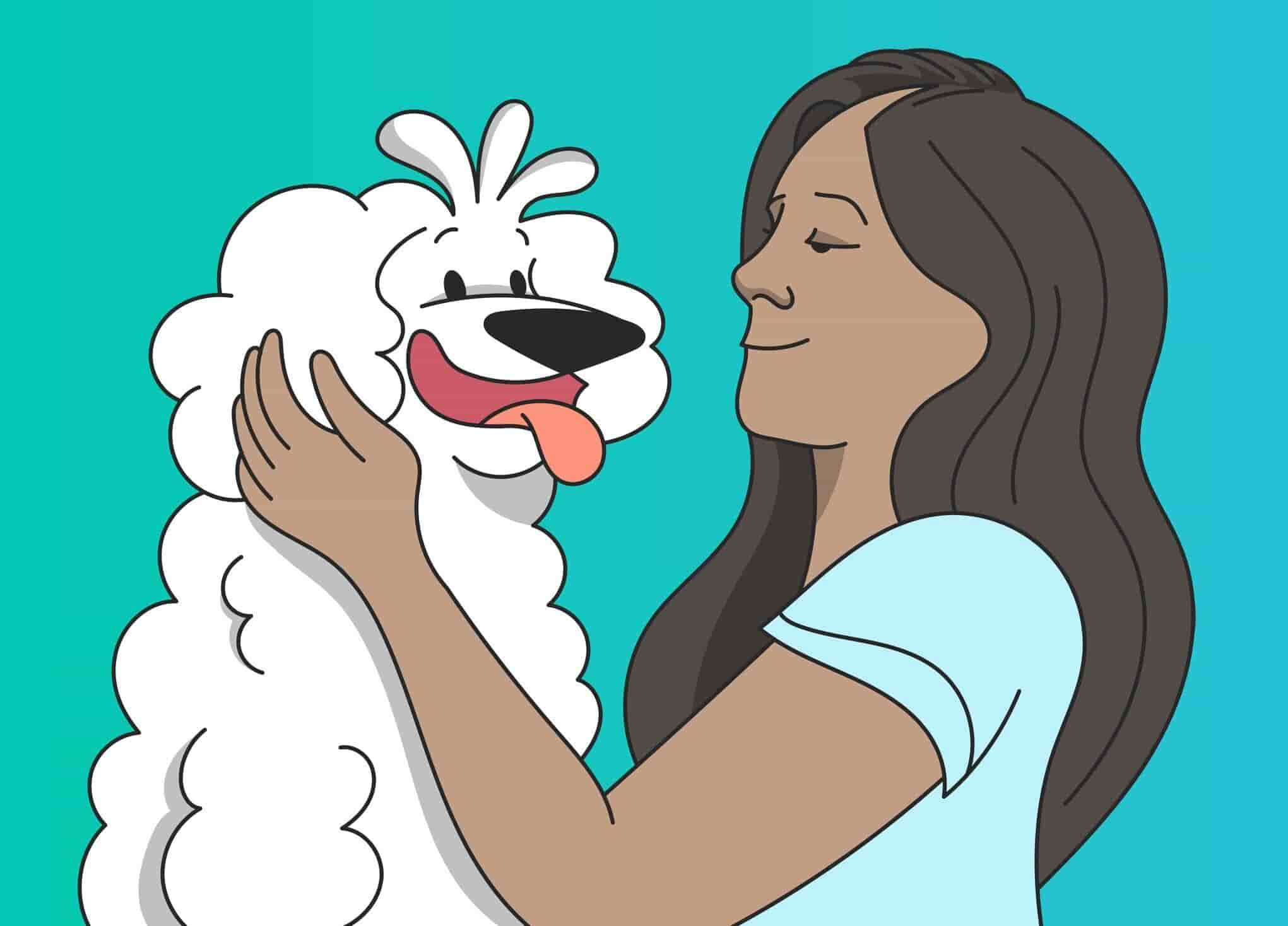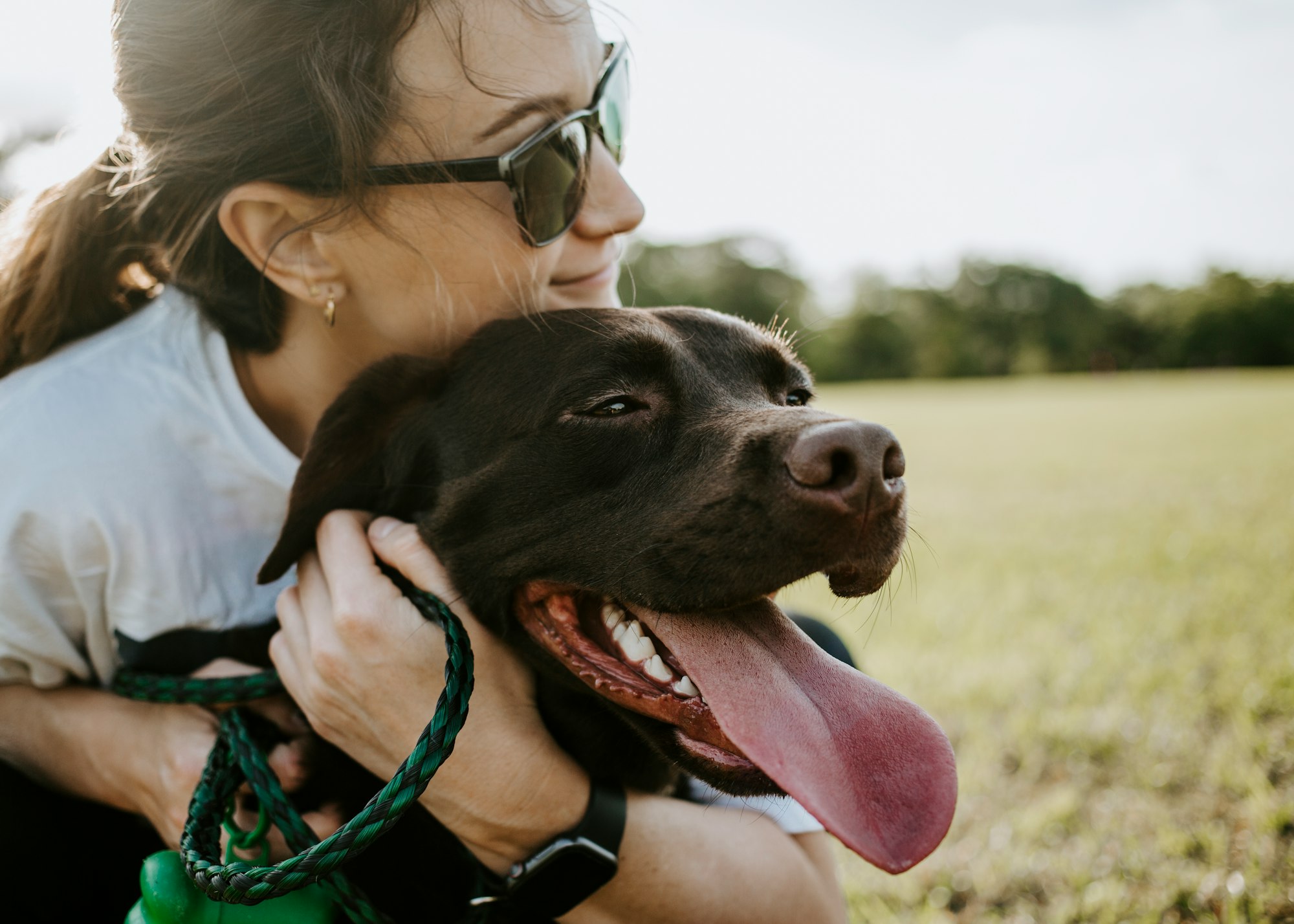Do you know your dog laughs out loud? Your dog can cry and feel guilty, too. Just observe him carefully!
Studies have shown that dogs have similar emotions as humans, and they understand us through gestures and emotional expressions rather than words. It’s necessary for dog owners to understand dog emotions to enhance the quality of life they spend with their furr-end.
A team of People for Animals and Cruelty-Free International, together, researched emotional intelligence of dogs by employing the MRI brain scan technique. They found that dog’s EQ to be equivalent to that of a human toddler of two to three years old. Dogs demonstrate similar behaviors like tolerance, forgiveness, fairness, selflessness, and altruism.
Seven Emotions Our Dogs Experience
Dogs experience seven kinds of emotions, and we may have understood most but not all of them. They experience some of the same emotions as humans, including love, sadness, jealousy, and anger. However, they also experience other emotions that we may not be able to understand, such as a sense of smell, which allows them to track and find things.
1. Joy
An excited dog having lots of fun can express his feelings by jumping around, wagging his tail in, and friendly gestures. A calm, happy and joyous dog can have upright ears, a high-held tail, a relaxed position or humped one, an open mouth (with a slight smile), and gentle behavior.
2. Fear
Fear and phobias are common in dogs. Triggered by loud noises, uncertain situations, and threatening people, the dogs will feel insecure and fearful. Fearful dogs have piloerection (standing hair), flat ears, tucked tail, and tense body language. They will attempt to hide from scary triggers.
3. Anxiety
Anxiety is triggered by discomfort or long-term separation from the dog owner. Anxious dogs are seen panting, licking, or yawning excessively, attempting to escape or hide from distress, and developing addictive habits like excessive chewing, tail-chasing, etc.
4. Jealousy
Do dogs get jealous? Research conducted at the University of Vienna discovered that dogs felt jealous when they were not treated fairly. They stopped obeying the orders. When the dog is jealous, either they will ask for more attention or start to ignore you.
How to stop jealousy in dogs?
There is no one-size-fits-all answer to this question as the best way to stop jealousy in dogs will vary depending on the individual dog's personality and behavior. However, some tips on how to stop jealousy in dogs include providing positive reinforcement for desired behavior, redirecting attention away from potential trigger objects or situations, and teaching the dog to associate people or other animals with positive experiences.
5. Guilt
Ever wondered - do dogs feel guilt? A guilty dog, who had misbehaved in your absence, will have a bowed head, droopy ears, hunched body posture, and a sad gaze. They may demonstrate submissive body posture because of the knowledge that they will get punished for bad behavior.
6. Grief
When answering the question "Do dogs understand death?" - it is true, that dogs experience sadness when a family member or house pet passes away. They feel distressed and may suffer from depression. Depression involves loss of appetite, lack of sleep or excessive sleepiness, lack of interest, and low energy levels. During moments of grief due to a human loss, you have to help your pet overcome the negative emotions.
7. Aggression
Dog aggression is apparent through stubborn behavior, growling, snapping, biting, and excessive barking. The dog can attempt to dominate the owner by mouthing and muzzle punches.
Why developing an emotional understanding of dogs is important?
Dogs are social animals that crave companionship and interaction with their pack. Without a strong emotional connection, dogs can become anxious, depressed, and stressed. A deep emotional understanding allows dogs to feel secure and loved and builds a foundation for a lifelong bond.
Most pet owners bring home a dog or a cat to overcome their loneliness, depression, or stress. Some buy them for the happiness of their children. But, have you ever thought from the perspective of the dog or puppy who has been introduced to your family, and looks up to you as their only savior? Here are the benefits of developing an emotional understanding with dogs:
- It will help you raise an emotionally balanced dog.
- It will make the training process easy, where you can manipulate the good moods and mold the negative emotions on the spot.
- It will prevent your dog from getting into depression, stress, or separation anxiety.
- You can have an emotionally intelligent dog.
- Often, dogs catch your emotions. So, you can understand your reactions and emotions better by staying aware of your behavior towards your dog.
Awareness about dog emotions and personal reactions is required so that better behaviors are adopted for personal development, and practical training techniques are employed for the dogs. Moreover, you can seek professional help in case of severe behavior problems. As much as the dog makes us happy, it’s our job to make him equally happy, comfortable, and content.
You can also track their emotions, behaviors, and gestures when you are away from home with the help of the Petcube interactive dog camera. Monitor your doggo and how they behave when they are alone!
Online Vet by Petcube
Staying in touch with the vet might be especially useful if your dog often exhibits various emotions and behaviors but you don't quite always know what they mean and what you should do.
Online Vet by Petcube is a service that can provide you with security and safety for your pet. Online Vet gives you an opportunity to have a 24/7 online vet visit and talk to a certified online vet anytime you have a question. The service offers professional help from a team of certified veterinarians — for only $19.99/month.
The process is easy: ask a vet online and get the answer in minutes, as the best online vets are on-call every day, late at night, and on holiday, ready to provide care anytime.
About the author:
James Shore is a part-time dog trainer and dog behavior consultant. He is a professional freelancer with years of experience in dog training. He is interested in finding out fun ways to handle dog behaviors, specifically, Labradors to help dog-owners enjoy their companions at all times. His pet passion led him to develop Labrador Training HQ to help people.
Was this article helpful?
Help us make our articles even better










